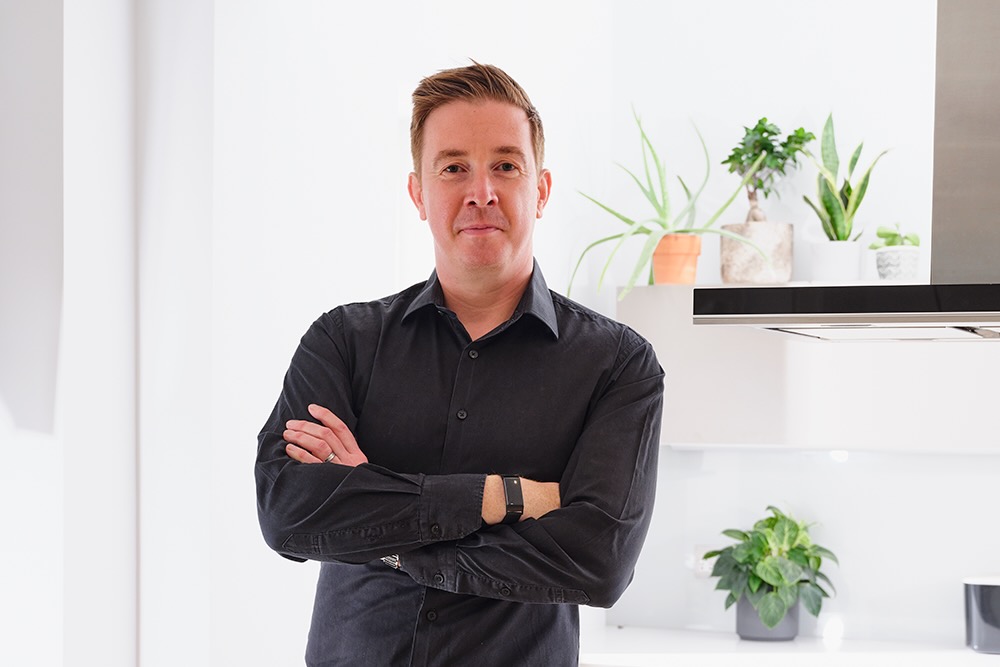Stuff Meets… Halo vacuum chief Paul Bagwell on stress, taekwondo and geekdom
The fittingly named CEO of Bagged vac brand Halo Appliances talks about his career and how he thinks bagged vacuums are better

It takes guts to go against the grain, especially when the grain happens to be Dyson and SharkNinja, both former employers. Paul Bagwell is certainly up to the job of fresh thinking though, as we find out in this interview…
I’ve always been passionate about making stuff.
It’s always been my passion – making stuff – and it’s always been consumer products I’ve worked in. That for me is the most fun because everyone you meet can relate to it – everyone you speak to on a day-by-day basis is a potential customer, a potential consumer who has potential frustrations that can be solved through innovation.
I started my career at Dyson.
Back when Dyson was a much smaller business it was a lot of fun – they gave a lot of freedom to graduates to go out and solve problems and to run teams, so that was a good place to start. It also taught me to challenge the status quo and not accept product limitations based on commercial success.
I left SharkNinja, where I was London GM, to found Halo.
After many years working with big brands, I noticed a trend: they tended to look inward, making small tweaks here and there instead of real, bold improvements. I saw an opportunity to break away from that pattern and create something fresh from the ground up. At Halo, we’re less concerned with what other brands are doing and much more focused on what our customers need – without gimmicks or added costs. That kind of fresh thinking would have been impossible within the entrenched mindset of larger brands.
Halo came from frustration.
If people are frustrated about something, then there’s an opportunity there – a problem to be solved. Vacuum cleaners were all having the same challenges: everything was bagless and that meant lots of plumbing, lots of weight because of the plumbing, lots of complexity, and problems with clogging and filters that needed endless washing. This spurred me on to make a vacuum cleaner that can do better. Bagless vacuums have OK performance… but if the dirt ends up on your shoes by the bin, or in a heap on the floor from clogging, then it hasn’t really done its job.
We have a Tesla and just got a Cupra.
The Tesla has an intuitive UI for knowing how to charge it and all that stuff; then I’ve got this Cupra and I don’t even know how to set it to charge – I have to go into a different app to work it out. It’s interesting how the experience of the same technology can be massively different just because of the UI.
What interests me is the tech that enables stuff.
I love my robot lawnmower because it does the job better than I can, and it does it while I’m sleeping. For me that’s a perfect example of how tech makes something better. We have connected speakers all the way through the house because that’s a great way of sharing music through the family – and for me, that’s a technology where if you didn’t go smart you’d be missing out.
AI will change everything.
There’s this lesson from history where change is overestimated in the short term but it’s underestimated in the long term. AI is going to change everything, but over a longer period than we think. Within that I think there’s going to be a lot of trying stuff and it not working, and there’s a lot of stuff in its infancy now that’ll be really important in 5-10 years. In customer service, for example, you may never speak to another human; but with other things, like creating images or movies in AI, maybe that’s overestimated because of the human touch. The thing that makes stories interesting isn’t an AI thing; it’s the stuff you can’t compute for that makes it art.
I have several ways of managing stress.
I’m an engineer at heart – I like to design products that make people’s lives easier. Setting aside time to be creative is a great stress reliever and takes the mind to a calm and productive place. During the most testing times I do my best to remind myself that anything worthwhile in life will always have a combination of good times and bad times. We only grow by taking ourselves out of our comfort zone. That is not always fun but any bad news is often short-term. Keeping an eye on the long term helps keep problems in context. Compartmentalising also helps: focusing on things you can control rather than those you can’t, and then switching off from work at the end of the day.
I’m a Fitbit fan.
I am a complete data geek, whether that’s at work or with fitness, or even tracking my sleep. I have used a Fitbit for several years now and can quickly see if I’m not training enough, or if stress is having an impact on my sleep or resting heart rate. I love the adage, “If you want to improve something, measure it.” I find my Fitbit indispensable to keep on the right path to living healthily.
I’ve started taekwondo again.
I stopped doing it for a long time because I was always travelling for work, so it was too difficult to do it consistently. Then lockdown came and I travel a lot less now, so I’ve been able to focus on some other things. Taekwondo is kind of like running a business: it’s slow progress, every day you do it you get a little bit better, and if you stick with it you get really good at it. There’s also a lot of knocks with it, and learning to get up from the knocks is really important – as it has been with Halo these last few years. I’m ready for anything… and determined to make Halo a household name.
Find out more about Halo at capsuleclean.com.


